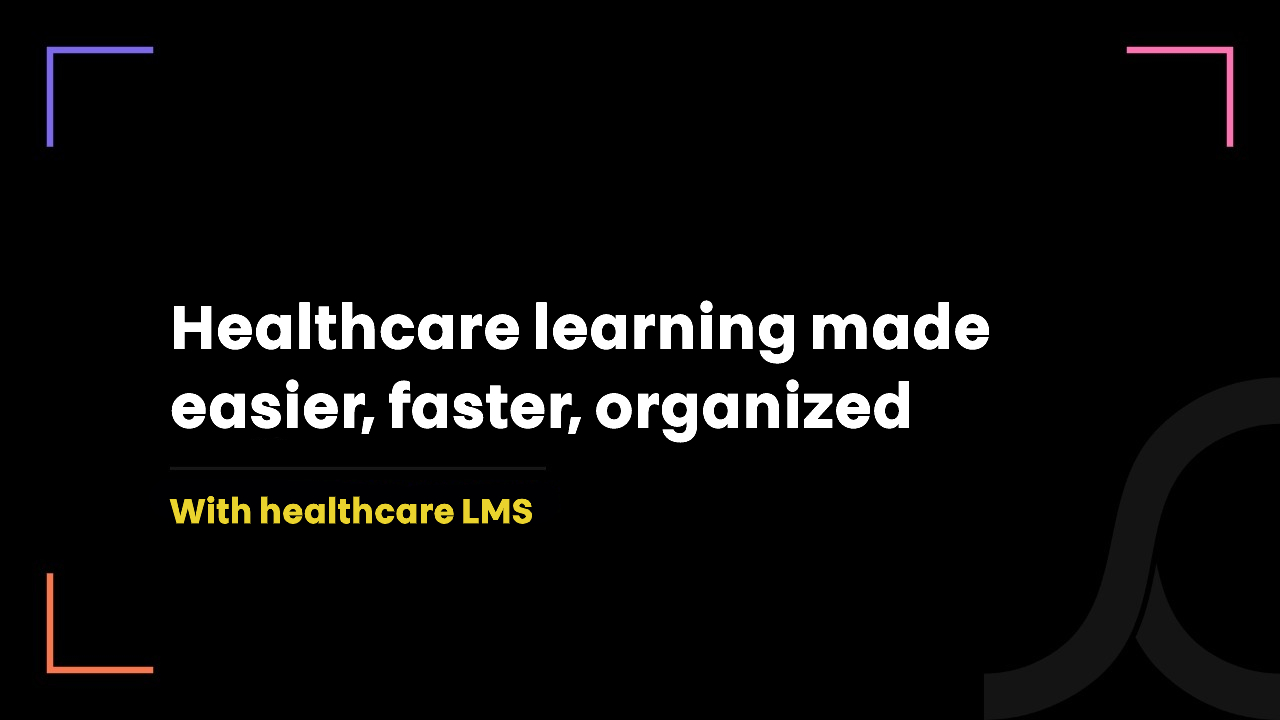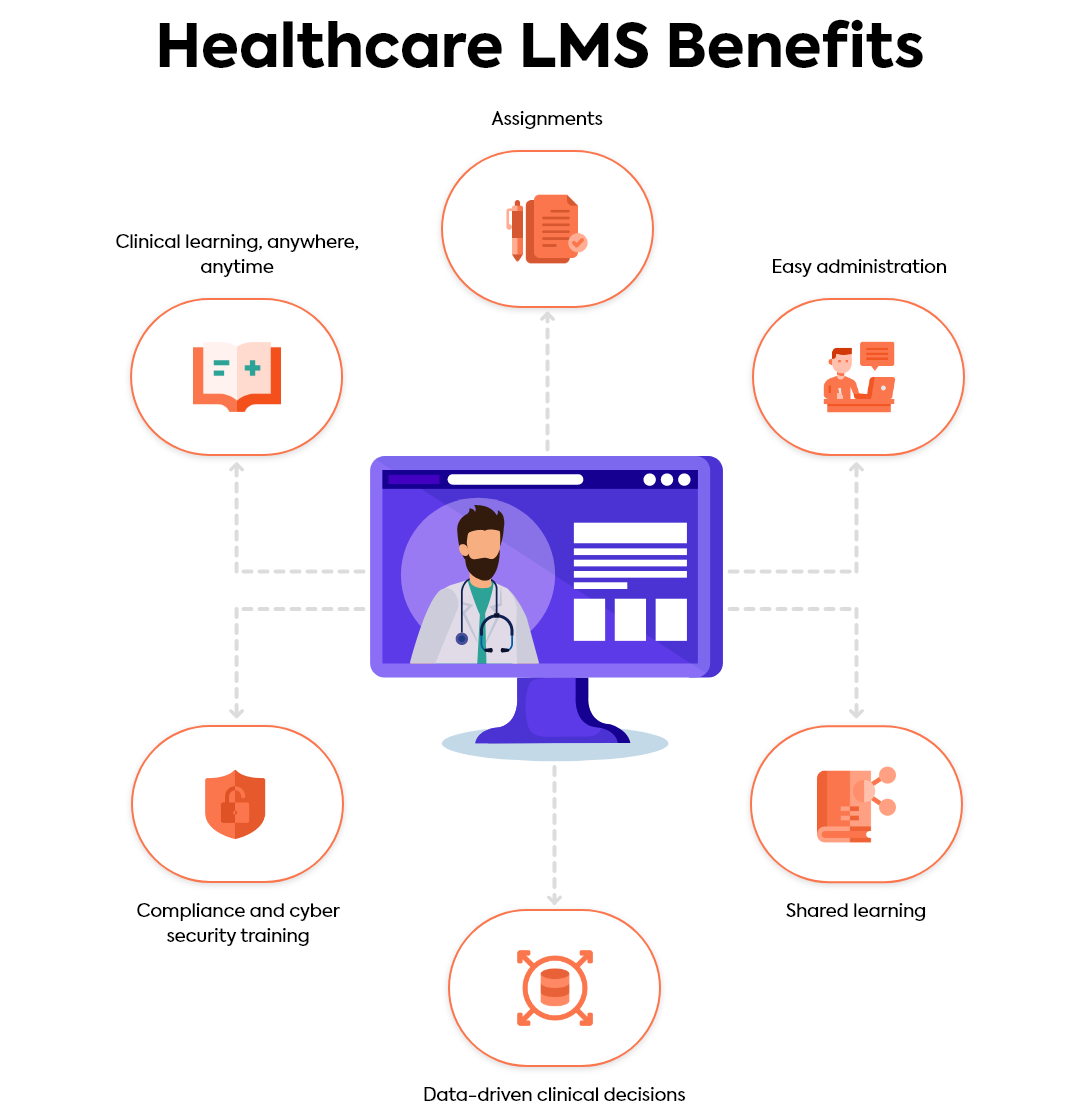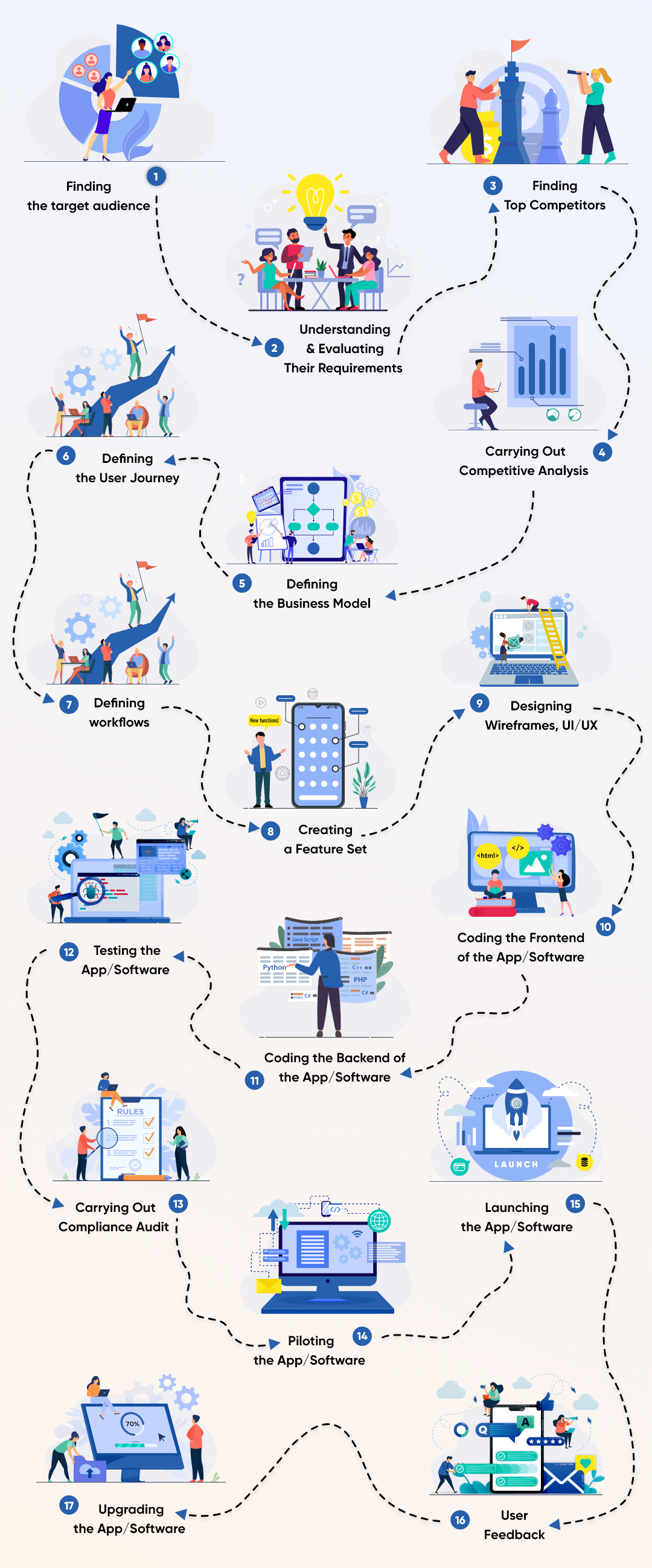A Guide to Building Custom Healthcare Learning Management System: What, Why, How & How Much

10 months ago
What a physician always needs is evidence in the form of clinical data.
What happened to a patient in the past, how he was treated, what was his medication plan, what were his vital body signs, what he is going through now, and so on.
Because these data always help physicians to learn and enhance patient outcomes by delivering the best possible care.
This clinical evidence can even help physicians of different healthcare entities to make informed clinical decisions, discuss appropriate care plans, engage patients, and enhance the overall quality of care collaboratively.
But the challenge here is to bring clinical data, patients, and clinicians under the same roof while ensuring data security and healthcare compliance.
And here is where the healthcare learning management system (LMS) plays its role.
What is a Healthcare Learning Management System?
We will define healthcare LMS based on its two major use cases.
Use case #1: A healthcare LMS is a software application that healthcare entities can use to administer, document, monitor, and report online courses that are useful for clinicians.
In other words, healthcare LMS helps healthcare entities provide effective clinical, administrative, and compliance training to their clinical and non-clinical staff while keeping everything in digital records.
Use case #2: Another more clinical-centric use case is shared learning of clinicians belonging to multiple healthcare entities.
This means clinicians of different organizations can collaborate, share clinical information they have in a more graphical format, and discuss care plans, medication plans, risk factors, potential outcomes, etc. to learn something new and feed it back to other clinicians.
This way, healthcare LMS enables continuous learning, continuous quality improvement, and continuous value generation in the entire healthcare ecosystem which ultimately benefits the patients.
Why is there Value for a Healthcare Entity to Develop a Healthcare Learning Management System?
We would never have written a blog on healthcare LMS (by investing our 5 hours) if it did not deliver any value!
So, here are its top values.

- Clinical learning, anywhere, anytime
Utilizing medical LMS, clinicians can anytime and from anywhere login into their accounts with their credentials and join courses. All they require is internet access and a smartphone.
- Assignments
Clinicians can test out their clinical knowledge or level up their clinical knowledge by participating in online assignments. The LMS keeps a record of their performance and even suggests to them where and how to improve.
- Easy administration
The management staff of the healthcare entity can view performance reports, track learner processes, issue certificates, and clear doubts of clinical staff from a single feature-rich dashboard.
- Compliance and cyber security training
A healthcare entity is always vulnerable to cyber attacks. What makes it easier for hackers is the lack of cybersecurity awareness among clinical staff.
So, to keep them aware of emerging cyber security threats as well as practices to not break the compliance-readiness status, you can run an ongoing training session around compliance and cyber security.
Most importantly, you can keep this training session well-documented as it is a requirement of many healthcare data privacy laws including HIPAA.
- Data-driven clinical decisions
A healthcare LMS facilitates clinicians and researchers of different entities to collaborate and share clinical data they have access to - with the purpose of knowledge sharing and knowledge gaining.
The LMS represents the clinical data in a more graphical format (possibly with added extra features) which makes it easier for clinicians to understand the trends.
- Shared learning
If any clinician of an organization learns something valuable that has the potential to revolutionize care, he can straightway put what he has learned into another part of the organization to make it bigger or generalized and to make sure that everybody can use that new clinical learning.
Solve These 3 Technical Challenges, and You Will Have a World-Class Healthcare LMS
Nothing comes easy, especially in healthcare!
Building a healthcare LMS is only 10% of planning, designing, development, testing & launching and 90% of solving these 3 challenges!
- Technical requirements of data privacy laws
Several data privacy laws apply to your healthcare LMS if you are managing patient data even for research and clinical learning.
Each of these healthcare privacy laws has several technical requirements to which you must adhere to be compliant with applicable laws.
For instance, data encryption is one of the technical requirements. So, you have to encrypt the patient data you manage. Otherwise, you will be liable for hefty fines for putting patient data security at risk.
What makes the situation here more challenging is the multiple laws and their multiple technical requirements, leaving you with no choice but to have dedicated compliance experts on board.
- Messaging standards (HL7, FHIR)
When clinicians use your healthcare LMS for collaborative learning and brainstorming purposes, they communicate via built-in chat, voice call, and video call functions, and even share clinical data.
So in such scenarios, to keep data integrity, authenticity, and security in place, your healthcare LMS must work while adhering to HL7, and FHIR standards.
And for that, you have to develop it in that way.
You must read: A detailed guide on HL7
- EHR/EMR integration
There is no need for EMR/EHR integration when you only want to leverage healthcare LMS for clinical and non-clinical staff training from pre-recorded videos and materials.
But when you have a more advanced use case of letting clinicians learn and discuss in a collaborative manner and with easy access to patient’s clinical data, you must integrate EHR/EMR with LMS.
With that, it becomes easy for clinicians to get access to all clinical data stored on EHR/EMR through LMS itself.
But the challenge here is that both healthcare LMS and EMR/EHR aren’t made for each other.
This means, that there will be by default several interoperability issues that affect the data sharing accuracy and efficiency.
Thus, you must follow all interoperability standards while integrating EHR/EMR with healthcare LMS, and trust us, not all can address these interoperability standards! (It requires specific skill sets!)
Our other useful resources:
Healthcare IT staffing in Canada
How to start a telemedicine business?
Develop ePharmacy app like Algo
How Do We Build a Healthcare Learning Management System? - The Entire Process

How Much Does it Cost to Build Healthcare Learning Management Software?
Okay. Let us be very frank with you.
Practically, we can’t estimate the cost of building a healthcare LMS without knowing your exact requirements.
And hypocritically, we can tell you any rough number to earn the sales.
And as we are known for, we believe in practicality.
Because we’re not here for fun.
We are here on a serious mission - to revolutionize healthcare with technologies!
We're an Ontario-based IT company, but only serving the healthcare industry.
Because, healthcare is where we do exceptionally well - in terms of strategies, design, development, QA, compliance, integration, and delivering peace of mind to clinicians.
When we look back, we see the happy faces of LTC home staff, residents, patients, their family members, and most importantly our healthcare providers who are now able to deliver quality care with ease - thanks to their guts to ask us for help and our expertise in building healthcare digital solutions.
Yes, we're a group of people - who have been working on healthcare IT projects ever since the first day of our professional careers.
And you know what - being specific to the ‘one’ industry is the extreme art of delivering outstanding results to clients of that ‘one’ industry!
